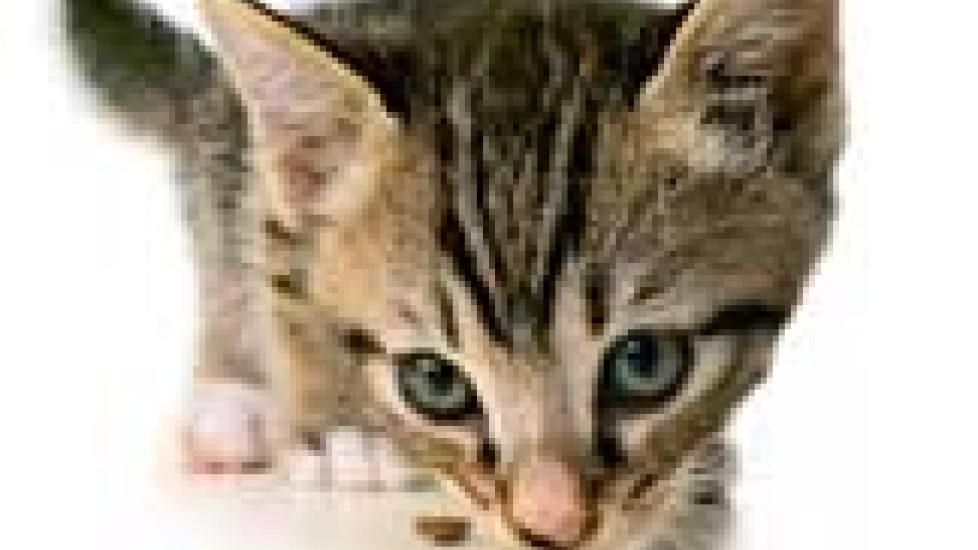Is High Protein All Good for Kittens?
Conventional wisdom these days seems to support feeding cats high protein/low carbohydrate foods. Cats are carnivores, after all. Studies have shown that these types of diets are certainly beneficial for certain health conditions (e.g., diabetes mellitus), but I tend to be wary of blanket statements like, "all cats should be fed a high protein/low carbohydrate food."
Now, before the howls of protest get too loud, let me clarify. I’m talking about diets that provide a whole lot more protein than the National Research Council’s recommended allowances of 22.5% for growing kittens and 20.0% for adult cats. Many commercially available cat foods now contain 40% or more protein on a dry matter basis.
Could all that protein potentially be a problem? A paper published in August answers "perhaps," at least with regards to the microbes that live in the gastrointestinal system (microbiome) and have a huge impact on an individual’s health.
A University of Illinois press release described the research.
One month before mating, eight domestic shorthair female cats were randomly assigned to one of two dry diets: high-protein [52.88%], low-carbohydrate (HPLC); or moderate-protein [34.34%], moderate-carbohydrate (MPMC). When the kittens were born, they were housed with their mothers until they were 8 weeks old, weaned, and then fed the same diets as their mothers.
Twelve of the kittens became part of the study. The researchers took fecal samples at weaning and at 4 and 8 weeks after weaning. They extracted bacterial DNA and used bioinformatics techniques to estimate total bacterial diversity.
The researchers found important differences between the two groups in microbiome composition. As they had expected, levels of proteolytic bacteria (which break down protein) were higher for kittens on the HPLC diet and levels of saccharolytic bacteria (which break down carbohydrates) were higher for kittens on the MPMC diet.
They also looked at relationships between the diets and physiology. The kittens fed the MPMC diet had high levels of bifidobacteria, which was linked to higher blood ghrelin levels. Ghrelin is a hormone that stimulates appetite and thus may be linked to weight gain.
At the same time, the bifidobacteria may promote better gastrointestinal health. Low levels in humans have been linked to inflammatory bowel disease.
Other bacteria found at higher levels in the MPMC kittens, including lactobacilli, are also linked to gut health. The researchers found a positive relationship between lactobacilli, blood cholesterol, and blood leptin levels. Leptin is the signal that tells the body to stop eating. Hence, lactobacilli may be linked to cholesterol metabolism, appetite, and body weight regulation.
Although kittens fed the HPLC diet had lower levels of some health-promoting bacteria, including Bifidobacterium, Lactobacillus, and Megasphaera, all the animals were healthy throughout the study.
The argument that mice are high protein/low carbohydrate and therefore cat food should be so also makes sense on its surface, but the lifestyle of a typical domestic cat (mine is currently snoring away on her pillow) is so different from their wild predecessors that it may not be in their best interests to feed them in the same way. This research certainly doesn’t indicate that high protein/low carbohydrate diets are bad for cats, just that the situation is probably more complicated than we’d like … as always.

Dr. Jennifer Coates
Image: Ronen / via Shutterstock
